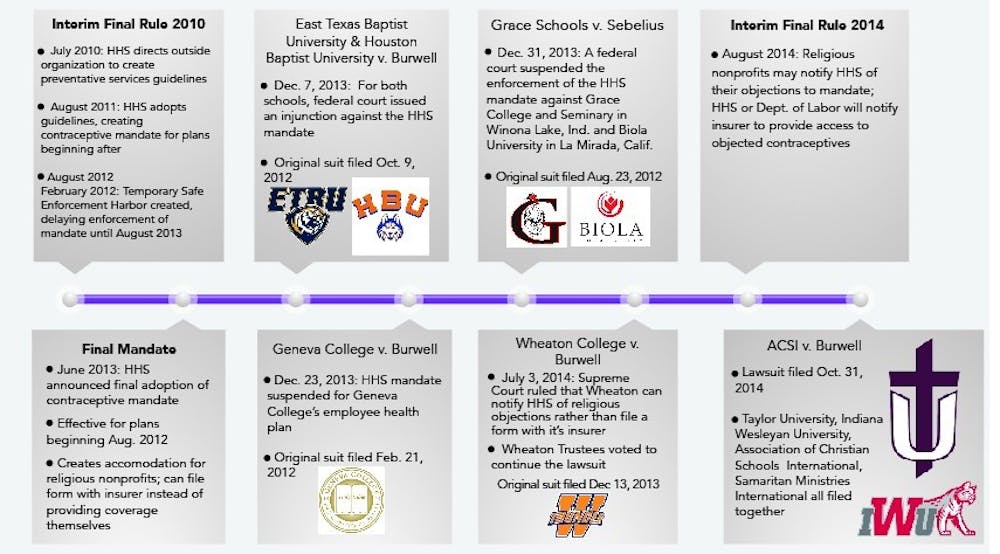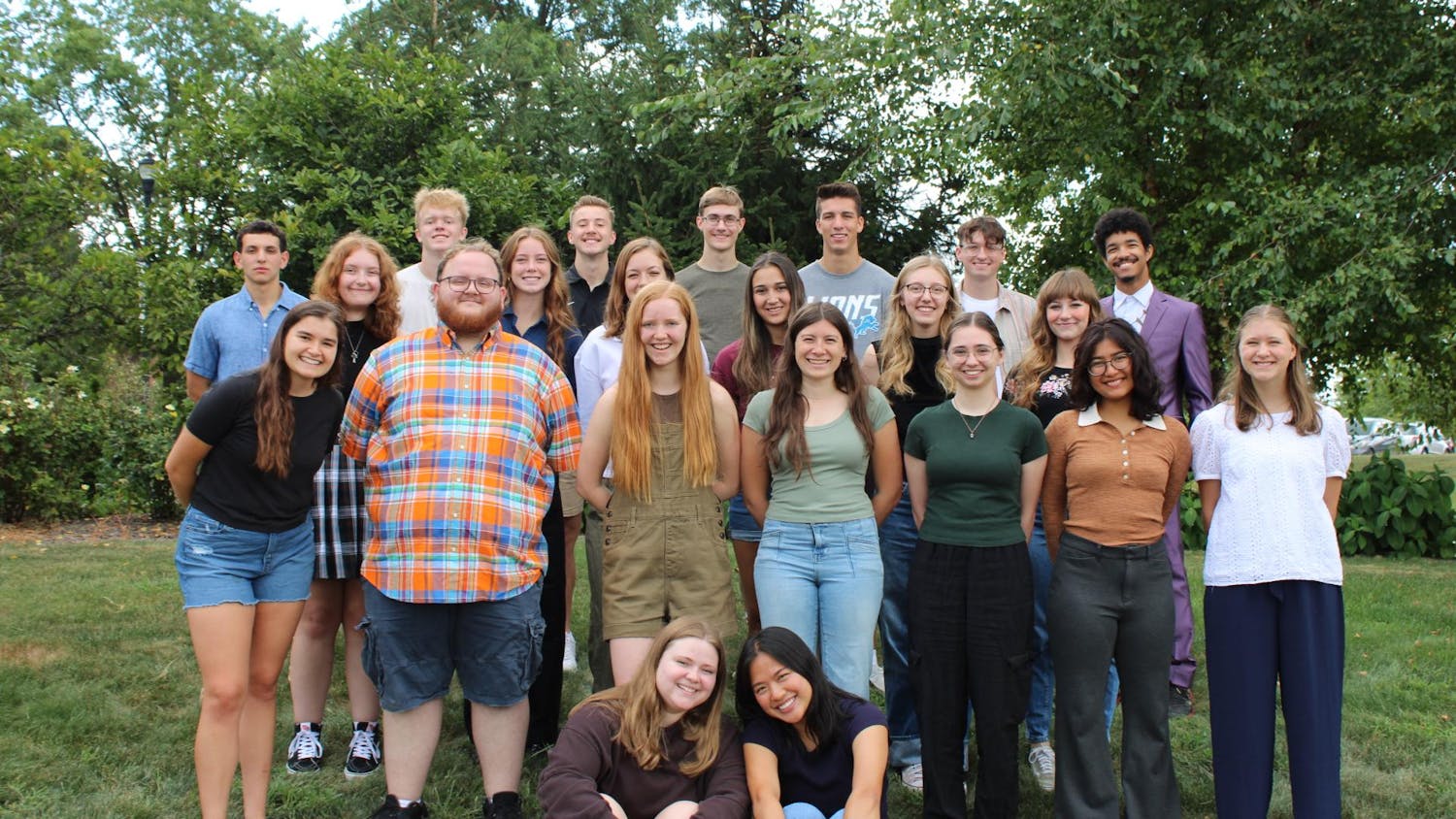Editor's Note: This is the second in a two-part package covering Taylor's lawsuit. The first story addresses the details of the case.
By Erika Norton | Echo
Taylor's lawsuit is just the latest in a series of cases that began after the Obama administration issued controversial contraceptive rules. The Echo created a timeline of key rulings and cases beginning with the administration's earliest mandates, based on information contained in Taylor's lawsuit.
On Aug. 1, 2011, the former U.S. Department of Health and Human Services (HHS) Secretary Kathleen Sebelius adopted guidelines requiring employers to provide contraceptive coverage under the Affordable Care Act (ACA), known as the Interim Final Rule of 2010.
With the August 2011 guidelines, HHS created a religious employer exemption to the contraceptive mandate. The exceptions exempt churches and houses of worship. However, Christian hospitals, Christian charities, faith-based universities and other religious organizations that oppose contraception or certain contraceptives on doctrinal grounds are included in the mandate.
Sebelius initially said the mandate would apply to health insurance plans issued in August 2012 or later. But in February 2012, the HHS announced a "Temporary Enforcement Safe Harbor" that would delay enforcement of the mandate until August 2013. Sebelius said HHS would consider the mandate's effect on religious employers and take appropriate action.
After February 2012, faith-based institutions filed a chain of lawsuits fighting the mandate. Alliance Defending Freedom (ADF), which is representing Taylor, and The Becket Fund, which represented Hobby Lobby in its case against the mandate earlier this year and currently represents Wheaton College, are handling multiple similar cases.
Geneva College was one of the first institutions to file suit against the HHS mandate on Feb. 21, 2012. Grace College and Biola University filed together on Aug. 23, 2012. In both cases, a federal court ruled to suspend the HHS mandate, according to ADF.
Other schools that filed during this first chain of lawsuits include East Texas Baptist University and Houston Baptist University in Texas, according to The Becket Fund.
Following these lawsuits, HHS adopted the "Final Mandate" in June 2013, which made permanent the requirement that employers cover contraceptives. The mandate would apply to plans beginning Aug. 1, 2013.
The Final Mandate also created an accommodation for religious employers not exempt from the mandate. The mandate which would allow employers to file a form with their insurance provider stating their objection to the contraceptives. Then, the insurance provider would arrange coverage. The Final Mandate extended the safe harbor to the end of 2013. Thus the form would need to be filed before the employer's next plan year beginning after Jan. 1, 2014.
This triggered a second wave of lawsuits, including those filed by Dordt College, Cornerstone University, four Christian universities in Oklahoma and Wheaton College, according to ADF and the Becket Fund.
On July 3, the Supreme Court ruled Wheaton did not have to fill out any forms, and it prevented the government from imposing enormous fines against the college, Wheaton's Director of Media Relations LaTonya Taylor told The Echo.
According to Taylor, Wheaton's Board voted to continue Wheaton's lawsuit because the accommodation does not resolve the moral and constitutional problems they feel are created by the mandate. The college expects the case to proceed in the U.S. District Court for the Northern District of Illinois and the U.S. Court of Appeals for the Seventh Circuit.
Taylor's lawsuit opposes the same accommodation Wheaton is fighting.





